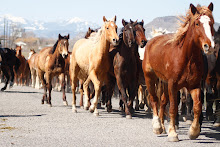I read Susanna and shortly after I explained to my boyfriend the premise of the story. He sat there looking somewhat apprehensive that the story he just heard could be a part of the Bible as he knew it. I asked him what he thought of the story, or what message he heard and he replied, “If you’re going to be a creeper, then you should creep alone. And, just don’t be a perv.” Note: He is a great engineer, but I never said I liked him for his literary smarts.
Susanna you are righteous.
Peter Quince, what do you have to do with this poem? I know that you are the director from Shakespeare’s “A Midsummer Night’s Dream”, but why do you appear to be the speaker in this poem? What does “AMSND” have to do with Susanna and the creeping Elders? As I recall, Peter Quince directed a play about two lovers who are separated by a wall and can only communicate through a small hole. Perhaps this is similar to or symbolic of the walls of Susanna’s garden. How clever. What is it about lust that makes one feel as though they need to break down it’s walls? Lust can often make one feel as though they are so wild with emotion that can climb walls that were before too big to climb.
It is not difficult to see that the story of Susanna and the Elders is reflected in this poem as references are plainly made throughout the text. However, what about the theme of music? I get the idea that the poem is composed similar to a score of music with four parts or stages and a identifiable rhythm. Is Wallace simply being clever with his poetry? My favorite integration of music into the story is,
A breath upon her hand
Muted the night.
She turned --
A cymbal crashed,
Amid roaring horns.
Can you hear the silence that must have come over the garden as the Elders whispered perversities into Susanna’s ear? The same silence of a well planned pause in music before the uproar! The cymbals collide and there is no turning back.
Susanna’s beauty and her righteous belief in God remains just like music. For even after death something always remains. You can’t kill music and you in Susanna’s case you cannot kill her beauty or beliefs.
Susanna's music touched the bawdy strings
Of those white elders; but, escaping,
Left only Death's ironic scraping.
Now, in its immortality, it plays
On the clear viol of her memory,
And makes a constant sacrament of praise.
So, that’s how I feel about the poem. It isn’t a step by step analysis or an explanation of what is literally going on here. I’m not explaining every detail my enginerd boyfriend in this blog. I’ve read in other’s blogs that people didn’t like the poem. I think it takes several readings and a few moments of reflection about Susanna and the Elders before anything really starts to sink in. As I have learned, the stories of the Bible are everywhere! Some are just more beautiful, or more discreet than others.
Thursday, October 22, 2009
Subscribe to:
Post Comments (Atom)

No comments:
Post a Comment